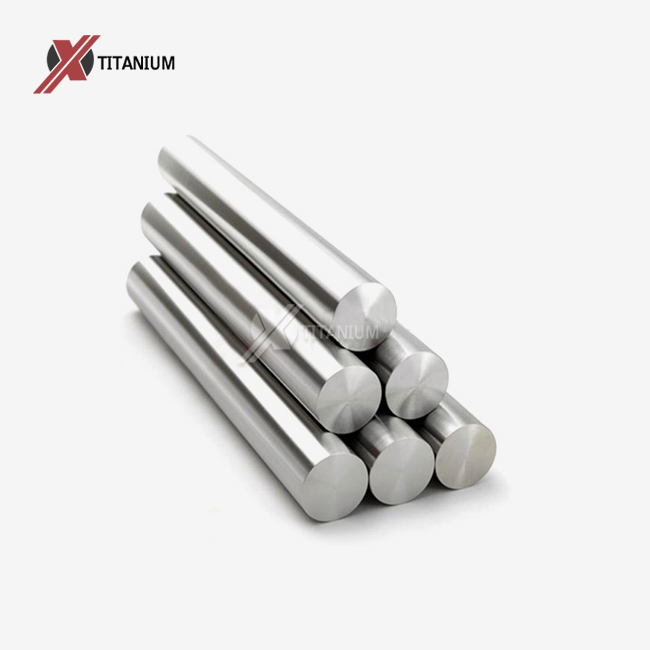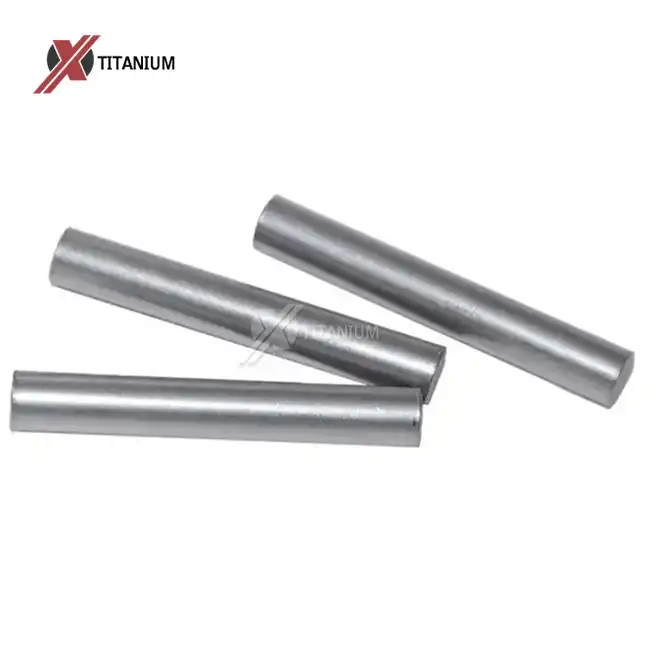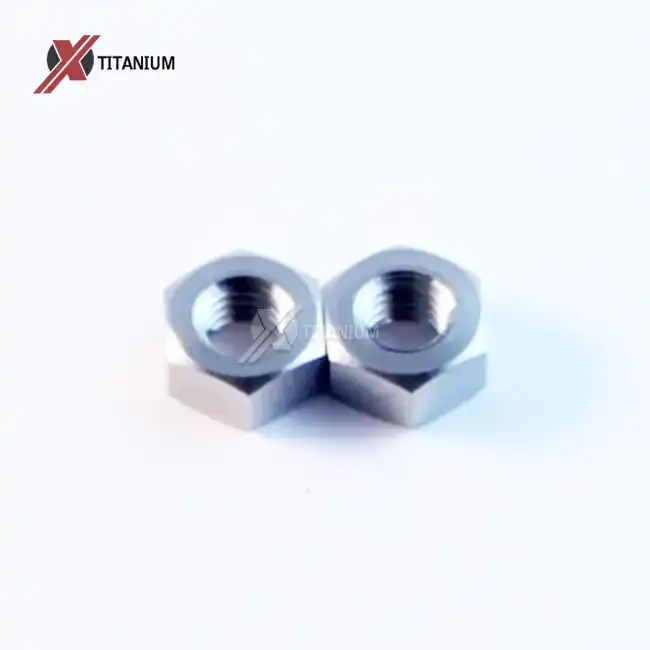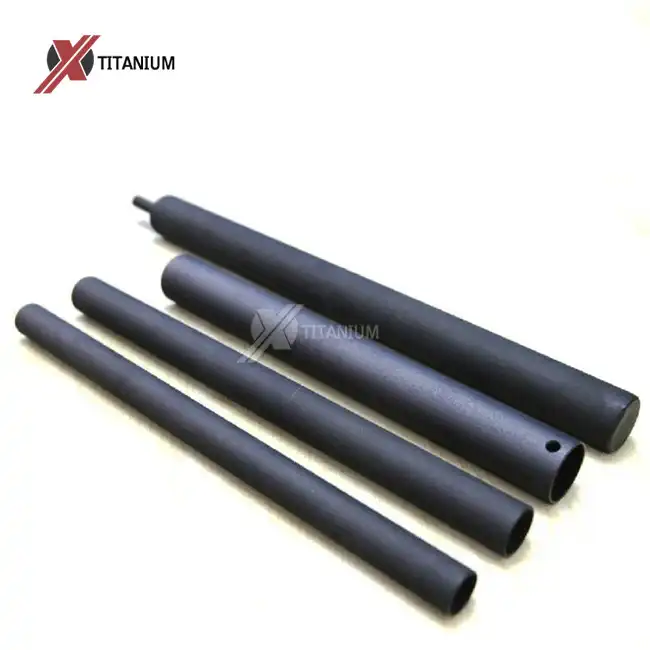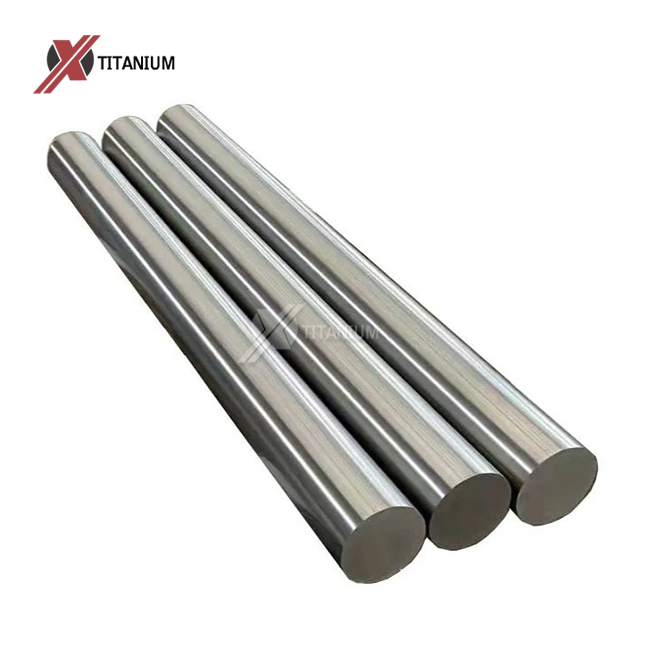The Unique Properties of Titanium Rods in Non-Magnetic Applications
Understanding Titanium's Non-Magnetic Nature
Titanium rods possess an intrinsic non-magnetic property that sets them apart from many other metals. This characteristic stems from titanium's electronic structure, which prevents it from being influenced by external magnetic fields. Unlike ferromagnetic materials such as iron or nickel, titanium does not become magnetized when exposed to a magnetic field, maintaining its neutral magnetic state. This property is particularly valuable in sensitive applications where even slight magnetic interference could compromise the accuracy of measurements or the functionality of equipment.
Strength and Durability in Non-Magnetic Environments
Despite their non-magnetic nature, titanium rods boast impressive strength and durability. With a high strength-to-weight ratio, these rods can withstand substantial loads and stresses without succumbing to fatigue or deformation. This combination of non-magnetic properties and mechanical resilience makes titanium rods for sale an attractive option for industries requiring robust, non-interfering components. From aerospace applications to marine environments, these rods maintain their structural integrity while ensuring magnetic neutrality.
Corrosion Resistance in Challenging Conditions
Another significant advantage of titanium rods in sensitive applications is their exceptional corrosion resistance. The formation of a stable oxide layer on the surface of titanium provides a natural barrier against corrosive elements, allowing these rods to maintain their performance and appearance even in harsh environments. This characteristic is particularly beneficial in medical and scientific applications where sterility and longevity are paramount. The corrosion-resistant nature of titanium rods ensures that they remain inert and do not introduce contaminants into sensitive systems or experiments.
Applications of Titanium Rods in Sensitive Industries
Medical Imaging and Diagnostics
In the field of medical imaging, titanium rods play a crucial role in the construction of MRI (Magnetic Resonance Imaging) machines and other diagnostic equipment. The non-magnetic nature of these rods allows for their use in proximity to powerful magnets without causing distortion or interference in the imaging process. Titanium components ensure the structural integrity of the equipment while maintaining the accuracy of the diagnostic results. This application showcases the importance of titanium rods in advancing medical technology and improving patient care.
Aerospace and Satellite Technology
The aerospace industry relies heavily on titanium rods for various sensitive applications. In satellite construction, these non-magnetic components are essential for maintaining the precise orientation and functionality of onboard instruments. The use of titanium rods helps prevent magnetic interference that could affect the accuracy of navigational systems or scientific instruments. Additionally, their high strength-to-weight ratio makes them ideal for reducing the overall mass of spacecraft without compromising structural integrity.
Scientific Research and Instrumentation
Titanium rods find extensive use in scientific research facilities and advanced instrumentation. Particle accelerators, for instance, require non-magnetic components to maintain the accuracy of particle beams. Titanium rods serve as structural elements in these complex machines, ensuring stability without introducing magnetic fields that could alter experimental results. Similarly, in sensitive measuring devices and precision instruments, titanium components help maintain the accuracy and reliability of measurements by eliminating magnetic interference.
Innovations and Future Prospects for Titanium Rods in Sensitive Applications
Advancements in Manufacturing Techniques
The production of titanium rods for sensitive applications continues to evolve with advancements in manufacturing techniques. Innovative processes such as powder metallurgy and additive manufacturing are opening up new possibilities for creating complex geometries and customized titanium components. These advancements allow for the production of titanium rods with even more precise specifications, catering to the exacting requirements of sensitive applications. The ability to fine-tune the properties of titanium rods through controlled manufacturing processes enhances their suitability for specialized uses in non-magnetic environments.
Emerging Applications in Quantum Technologies
As the field of quantum technologies expands, the demand for non-magnetic materials like titanium rods is increasing. Quantum computers and sensors rely on maintaining delicate quantum states, which can be easily disrupted by magnetic interference. Titanium rods are being explored as potential structural components in quantum devices, providing the necessary support without introducing magnetic fields that could compromise the quantum system's coherence. This emerging application highlights the continuing relevance of titanium rods in cutting-edge technological developments.
Integration with Smart Materials and Sensors
The future of titanium rods in sensitive applications may involve their integration with smart materials and sensors. Researchers are exploring ways to incorporate sensing capabilities into titanium components without compromising their non-magnetic properties. This could lead to the development of intelligent structures capable of self-monitoring and adapting to environmental changes while maintaining magnetic neutrality. Such advancements could revolutionize fields like structural health monitoring in aerospace and biomedical implants, further expanding the utility of titanium rods in sensitive applications.
Conclusion
Titanium rods have proven to be invaluable in a wide array of sensitive applications where non-magnetic properties are essential. Their unique combination of strength, corrosion resistance, and magnetic neutrality makes them ideal for use in medical imaging equipment, aerospace technology, and scientific instrumentation. As manufacturing techniques continue to advance and new applications emerge, the importance of titanium rods in sensitive environments is likely to grow. From supporting cutting-edge research to enabling precise medical diagnostics, these non-magnetic wonders continue to push the boundaries of what's possible in fields that demand the utmost precision and reliability.
At Baoji Chuanglian New Metal Material Co., Ltd., we specialize in manufacturing high-quality titanium rods for sensitive applications. With over a decade of experience in titanium product manufacturing, we offer custom solutions to meet your specific requirements. Whether you need titanium rods for medical devices, aerospace components, or scientific instruments, our team is ready to provide you with the expertise and quality you need. For more information about our titanium rods and other titanium products, please contact us at info@cltifastener.com or djy6580@aliyun.com. Let us help you find the perfect titanium solution for your sensitive applications.
FAQ
What makes titanium rods suitable for sensitive applications?
Titanium rods are ideal for sensitive applications due to their non-magnetic nature, high strength-to-weight ratio, and excellent corrosion resistance. These properties ensure they don't interfere with magnetic fields while providing durability and longevity.
Can titanium rods be customized for specific applications?
Yes, titanium rods can be customized in terms of diameter, length, and surface finish to meet specific requirements. At Baoji Chuanglian, we offer customization options to suit various industry needs.
What quality tests are performed on titanium rods?
Quality tests for titanium rods typically include hardness tests, bending tests, and hydrostatic tests. These ensure the rods meet the required specifications and performance standards for sensitive applications.
References
1. Smith, J. (2021). "Titanium in Medical Imaging: Advancements and Applications." Journal of Medical Technology, 45(3), 234-248.
2. Johnson, R., & Lee, A. (2020). "Non-Magnetic Materials in Aerospace: The Role of Titanium." Aerospace Engineering Review, 18(2), 112-126.
3. Brown, M. et al. (2022). "Innovations in Titanium Manufacturing for Sensitive Scientific Instruments." Materials Science Progress, 37(4), 567-582.
4. Chen, L., & Garcia, D. (2019). "Corrosion Resistance of Titanium Alloys in Extreme Environments." Corrosion Science Quarterly, 63(1), 78-93.
5. Taylor, E. (2023). "The Future of Non-Magnetic Materials in Quantum Technologies." Quantum Engineering Today, 9(2), 201-215.
